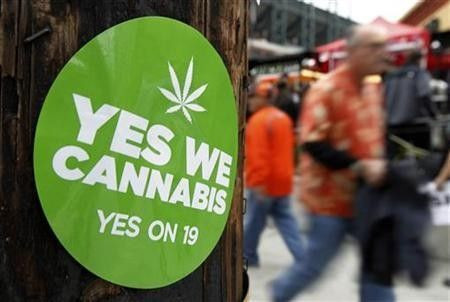White House Details Marijuana Legalization Opposition

The Obama administration again waded into the marijuana legalization debate, saying that support for keeping weed illegal because simply put, it is not a benign drug.
President Barack Obama's drug czar, Office of National Drug Control Policy Director Gil Kerlikowske, said that the administration is concerned about the effects of marijuana.
We... recognize that legalizing marijuana would not provide the answer to any of the health, social, youth education, criminal justice, and community quality of life challenges associated with drug use, Kerlikowske wrote on the White House's website.
The response from Obama's drug czar is part of a program called We the People, in which petitions for policy changes can be submitted to the White House. Petitions with 150 signatures can be publicly searchable on the White House's website. Those with enough support receive a response from a policy official.
By far, the most popular are the criminal justice-related petitions, many of which are about marijuana and drug policy.
Kerlikowske's response from Friday answered eight petitions about marijuana's status as a controlled substance. The one that received them most votes, with 74,169 petition signatures, came from the marijuana reform group NORML, which asked if weed should be regulated like alcohol.
Emphasis on Catching Large Drug Traffickers
Early into President Barack Obama's term, his administration directed federal prosecutors to focus on prosecuting significant drug traffickers, providing leeway to avoid going after individuals who comply with state medical marijuana laws.
However, raids and prosecution in states that have authorized medical marijuana continue. U.S. attorneys in California, for instance, announced a crackdown on large illegal growing operations and dispensaries, but stressed that individual users are out of their crosshairs.
Nonetheless, a group called the Drug Policy Alliance criticized the administration for escalating the war on medical marijuana patients.
Kerlikowske said that the administration's opposition to legalizing marijuana is based on the drug's association with respiratory disease, cognitive impairment and--in 9 percent of marijuana users--addiction, according to the National Institutes of Health.
When the President took office, he directed all of his policymakers to develop policies based on science and research, not ideology or politics, Kerlikowske wrote.
NORML, as expected, was none too satisfied with the administration's response. Russ Belville, an outreach coordinator with the group, wrote on NORML's blog that the Kerlikowske repeated the same tired lies and classic misdirections.
At the end of the lengthy rebuttal to Kerlikowske's response, Belville wrote that it amounted to the administration wasting America's time.
Marijuana policy reform advocates argue that the drug czar is ill-suited to respond to these petitions. Part of the law that created the Office of National Drug Control Policy requires the director to oppose any attempt to legalize the use of marijuana as a Schedule I drug.
A related petition submitted to We The People Monday requested that another administration official answer questions about legalizing marijuana.
© Copyright IBTimes 2024. All rights reserved.




















